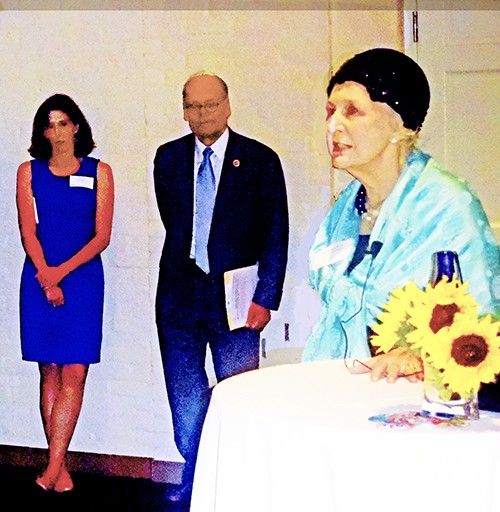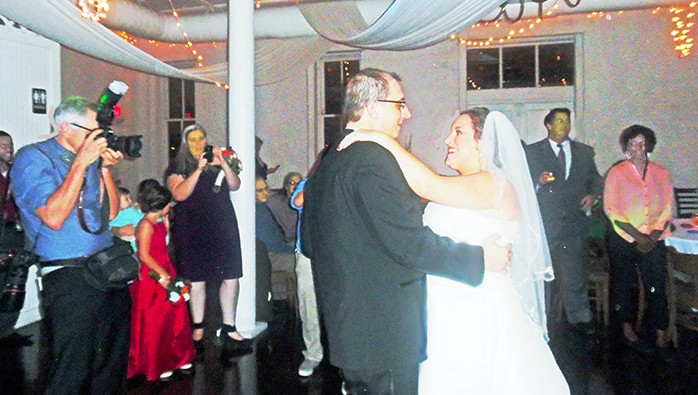Toward the end of Monday’s regular meeting of the Shelby County Commission, which had featured the final resolution of a month-long stand-off on approval of Chairman Justin Ford’s appointment of committee chairs, Commissioner Mark Billingsley, a Germantown Republican, conferred praise on the relative bipartisan unanimity of the day.
Billingsley went on to offer kudos for the inaugural “coffee and conversation” event sponsored by Ford last Friday, involving commissioners and guests at large, which he termed the kind of “positive” news often overlooked by the media.
Indeed, there was a fair amount of kumbaya on the political scene last week, a modest cessation of conflict, even as the calendar slipped into the final month of the fall political campaign and early voting began on Wednesday of this week.
One example of concord took place last Thursday at the Madison Hotel in a forum on Constitutional Amendment 2, one of four amendments on the November 4th ballot. The participants in the event, sponsored by the Federalist Society were Republican John Ryder and Democrat Steve Mulroy, both lawyers and both well-known for their partisan political involvement.
Ryder is a GOP national committeeman from Tennessee and general counsel of the Republican National Committee, and he was the chief architect of his party’s national redistricting efforts after the census of 2010. Mulroy, a Democrat and law professor, recently completed two terms on the Shelby County Commission and was a candidate earlier this year for his party’s nomination for Shelby County mayor.
Yet, both had no problem agreeing on the need for Amendment 2, which would constitutionally authenticate a variant of the oft-contested “Tennessee Plan” for appointment of state appellate judges. Like Governor Bill Haslam and former state Supreme Court Justice George Brown of Memphis, who had appeared at a public forum at the Kroc Center earlier in the week, both Ryder and Mulroy saw Amendment 2 as balancing the need for judicial independence with that of citizen input.
Essentially, the amendment provides for gubernatorial appointment of appellate judges, coupled with a need for ratification by both houses of the General Assembly. Judges would be subject to retention elections every eight years, as they are at present.
Along with the requirement for legislative approval (within a 60-day window for response), the amendment would do away with the current judicial nominating commission, which has previously been charged with making suggestions to the governor on the front end of the appointment process.
Ryder and Mulroy agreed, as had Haslam and Brown at the earlier forum, that direct election of appellate judges would introduce too much political involvement and financial influence into the naming process — a result of what Ryder called “an excess of Jacksonian democracy.”
While Amendment 2 has its opponents (notably lawyer John Jay Hooker of Nashville, who for years has litigated in favor of direct election of appellate judges), the most hotly contested of the four constitutional amendments on the ballot is unquestionably Amendment 1, which has generated considerable political activity and big-time war chests on both sides of the issue.
Basically, Amendment 1 would nullify a 2000 state Supreme Court decision, which provided protections of abortion rights that in some ways were stronger than those afforded by the federal courts. Opponents of abortion welcome the amendment, while supporters fear the “slippery slope” effect of its language allowing potential legislative action on abortion, even in cases involving rape, incest, and threats to the life of the mother.
 JB
JB
Director Ashley Coffield, Congressman Steve Cohen, and honoree Beverly Marrero at Planned Parenthood event
Planned Parenthood of Memphis, which is aggressively resisting Amendment 1, honored former state Senator Beverly Marrero at a fund-raising event for the its campaign last Thursday night. • Realistically, the battle for leadership on the Shelby County Commission is over for the time being — or at least in remission. By a vote, on Monday, of 11 for, one opposed, and one abstaining, the commission formally sustained Chairman Ford’s choices for committee chairs and thereby ended any immediate prospect of a challenge to his leadership. Monday’s vote was a reprise of a preliminary vote in Ford’s favor at last Wednesday’s committee meetings.
Given that last week’s vote had been similarly lopsided, there was very little fighting left to do at the regular commission meeting, and Democrat Walter Bailey, who had been the chief Ford resister, was content to cast his no vote, the only one against the appointments, as quietly and uneventfully as possible. The only other break from unanimity was an abstaining vote from Democrat Van Turner, chairman of the general government committee, which handled the appointments matter.
The lack of drama reflected the currently anti-climactic state of a controversy that had seen Ford’s appointments blocked and referred back to committee by a 7-6 vote — six Democrats and Republican Steve Basar — on a motion made by the disgruntled Bailey at the regular Commission meeting of September 22nd.
And the relatively matter-of-fact denouement occurred, despite some serious prodding from others, on both sides of the issue, who evidently thought the contest was still on.
Over the weekend, Norma Lester, a vocal Democratic representative on the Shelby County Election Commission, released the text of an “open letter” to fellow Democrats. The letter expressed Lester’s view that Ford, who was elected chairman of the reconstituted commission last month on the strength of his own vote, plus those of six Republicans, had subsequently fulfilled GOP wishes in the manner of the committee chairmanships.
Lester echoed Bailey’s charge that a “deal” had been cut on the chairmanship appointments between Ford and the GOP members who supported his chairmanship bid. Particularly controversial was the naming, for the second year in a row, of Republican member Heidi Shafer as chair of the commission’s budget committee.
Bailey had slammed what he called “political machinations” involved in both Ford’s election and his subsequent naming of committee chairs. Lester’s weekend letter seconded Bailey’s accusations of deal-making and “getting in bed with Republicans,” and made a charge of “blatant betrayal, which is what happened with young Ford and [is] the basis for the contempt amongst fellow Democrats.”
A visibly subdued Bailey restricted his objections on Monday to asking that the two appointments issue items be pulled off the commission’s consent agenda, leaving them potentially subject to debate.
But all Bailey had to say was “I again voice my objection.”
 JB
JB
Political activists turned up en masse for Saturday’s nuptials of well-known blogger Steve Ross and Ellyn Daniel, daughter of former state Rep. Jeanne Richardson.